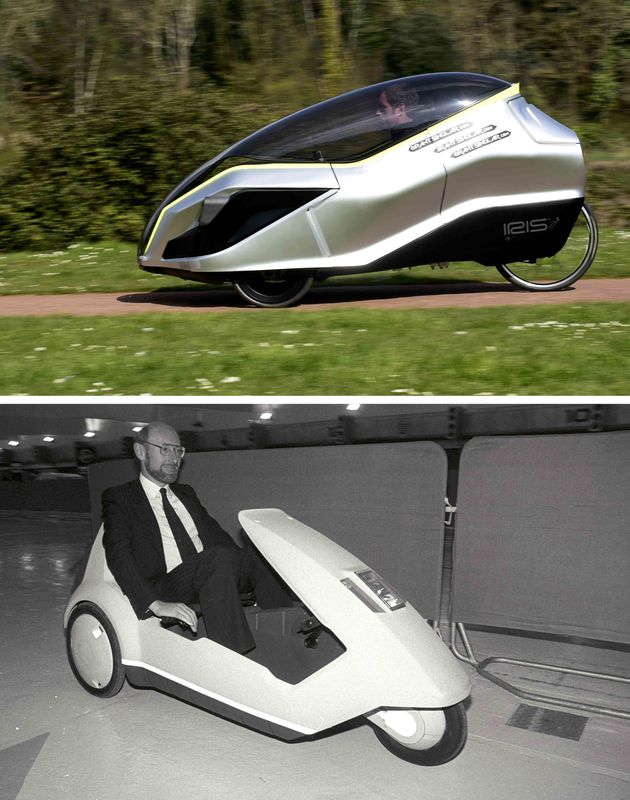By Jim Drury
CHEPSTOW, WALES (Reuters) - More than 30 years after his uncle spectacularly failed to get Britain moving in battery-powered tricycles, inventor Grant Sinclair is optimistic his updated version of the C5 will be a well ridden success.
Gone is the low seat, poor protection and white bath-like design that Clive Sinclair, who made his name as a famed innovator in the computer sector, was ridiculed for when he launched it in 1985 as the future of transport.
In its place is a three-wheeled Iris eTrike prototype, with an elevated seat, the look of a modern day cycling crash helmet and made from expanded polypropylene foam, a hardy substance used in model aircraft builds for its ability to absorb impacts.
"There's nothing else like this on the market. In terms of other e-bikes this is much lighter weight, and much safer because it's like sitting inside a large crash helmet," Grant Sinclair told Reuters.
Sinclair, 44, showed off the zippy 55 kilogram (121 pounds) one-seater vehicle in a ride over Old Town Bridge from England to Wales, riding ahead of a post van and then through a path in a local park.
The Iris has normal bicycle pedals and eight-speed race bike gearing, combined with a 250-watt electric motor with rechargeable battery pack that kicks in automatically once pedalling is detected. Recharging takes one hour.
Sinclair said his vehicle, which can reach speeds of upto 30 miles per hour (48 kph) and be ridden for up to 50 miles (80 km) with the motor, had grabbed the attention of three established manufacturers who were keen to mass produce it.
He is the third Sinclair to attempt to convince the world about eTrikes, with Clive's son Crispin failing two years ago with a design called Babel, which was unable to raise the required funds through crowdfunding.
The original C5 enjoyed millions of investment but managed minimal sales before it was discontinued, but Grant Sinclair is optimistic the world is now ready for e-Trikes.
"I think the C5 would have a much easier time these days because you have cycle paths everywhere," Sinclair said.
The Iris Trike will cost 3,999 pounds ($5,000) with first deliveries anticipated in late 2017.

($1 = 0.8006 pounds)